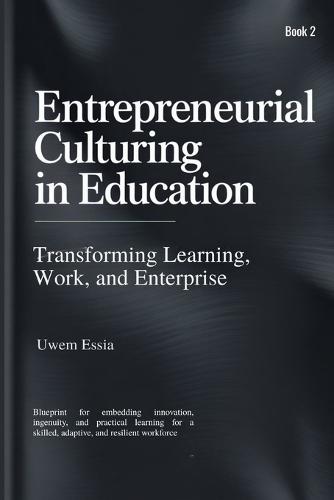Overview
This book presents the Entrepreneurial Culturing Program (ECP), the author's contextually adapted framework for embedding innovation, enterprise, and applied learning into African education systems, drawing lessons from Europe's Lisbon Strategy (2000-2010) and COM(2006)33. Key Insights: Education as a Driver of Transformation: Europe's shift to a knowledge-based economy demonstrates that entrepreneurship is a learnable competence when integrated across curricula, teacher training, and institutional collaboration. Africa's Contextual Adaptation: The ECP emphasizes indigenous knowledge, informal economies, and community engagement, ensuring policies are locally relevant and culturally resonant. Learning-by-Doing & Repair Pedagogy: Experiential, problem-based, and repair-focused learning strengthens cognitive adaptability, practical skills, and ethical enterprise. Institutional Ecosystems: Living Labs, Innovation Hubs, and school-enterprise partnerships transform classrooms into active sites of economic and social innovation. Teacher Empowerment: Educators serve as facilitators and mentors, linking theoretical knowledge with real-world application. Policy Imperatives: Establish National Councils for Curriculum and Enterprise Development (NCCED) to harmonize policy, education, and industry. Integrate entrepreneurship horizontally across all levels of education, from primary to tertiary. Implement monitoring and evaluation systems (NEI + adapted EntreComp) to track learner, teacher, and institutional outcomes. Encourage public-private partnerships to provide mentorship, funding, and industry-relevant projects. Embed sustainability, ethics, and social innovation into curricula to develop responsible, creative citizens. Recommendations: Develop teacher training academies focused on experiential pedagogy, repair, and problem-solving. Establish national and regional innovation hubs to foster applied entrepreneurship and community collaboration. Promote inclusive entrepreneurship by formalizing informal sector skills and incentivizing participation of youth, women, and marginalized groups. Align curriculum, policy, and institutional frameworks to ensure coherent, system-wide entrepreneurial transformation. Foster cultural adoption of entrepreneurial behaviors through civic engagement and social responsibility, ensuring reforms are sustainable and scalable. The ECP provides a practical, evidence-based blueprint for transforming education into a catalyst for innovation, skill development, and ethical enterprise. By embedding entrepreneurship as a cultural norm rather than a policy add-on, African nations can cultivate resilient, creative, and socially responsible citizens, bridging learning, work, and enterprise to achieve long-term human, economic, and social development.
Full Product Details
Author: Uwem Essia
Publisher: Independently Published
Imprint: Independently Published
Volume: 2
Dimensions:
Width: 15.20cm
, Height: 1.50cm
, Length: 22.90cm
Weight: 0.390kg
ISBN: 9798271143359
Pages: 290
Publication Date: 22 October 2025
Audience:
General/trade
,
General
Format: Paperback
Publisher's Status: Active
Availability: Available To Order

We have confirmation that this item is in stock with the supplier. It will be ordered in for you and dispatched immediately.



